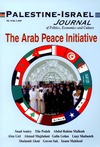This book, as its title indicates, gives an emphatic answer: For the 40 years since the start of occupation of the West Bank (known officially in Israel as Judea and Samaria), the settlers have done largely what they please, both legally and illegally; and they continue to do so. Although forced to withdraw in 2005 from the Gaza Strip, they have succeeded on the West Bank because of the connivance, both open and secret, of politicians, officials and army men - and judges and the legal system - plus successive United States administrations which have failed to hold successive Israeli governments to their promises to halt settlement expansion.
The result today is more than a quarter-million Israelis in settlements spread throughout the West Bank - and close to double that number if East Jerusalem is included. Why and how they are there is described by Israeli historian Idith Zertal and Haaretz chief political columnist Akiva Eldar.
It could have been different. On June 14, 1967, only a few days after the Six Day War, the authors record, four officers of the Mossad, the foreign intelligence service, submitted a report to Military Intelligence. They said that the vast majority of West Bank Palestinians, including the most extreme, were prepared to reach a permanent peace agreement. They recommended the creation of a Palestinian state as quickly as possible on the West Bank and the Gaza Strip "under the auspices of the Israeli Defence Forces" and "in agreement with the Palestinian leadership." They also proposed solving the refugee problem "once and for all" through an international project to rehabilitate and settle the refugees.
Their report was ignored. Instead, Israeli euphoria at the unexpected conquest of the West Bank and Gaza was followed by security perceptions and the rise of religious Zionism. The rest is history. The Mossad report must rate as the mother of lost chances for ending the Israeli-Palestinian conflict.
|
|
Zertal and Eldar expand on this in more than 500 pages of text and notes (but still about half the original Hebrew edition published in 2005). They meticulously dissect settlement activity such as seizing land from Palestinians; violence against Palestinians - and how quickly and ruthlessly that violence turns against the government if it dares to try to block or evict them; the debasing effects of occupation on the moral fiber and behavior of Israeli soldiers; and the cheap housing and other benefits which have drawn non-religious Jews to settlements.
This is one of the revealing details which help to explain the settlers' grip on the levers of power:
|
|
This is not merely a depressing catalogue of Israeli sins of omission and commission, for as Zertal and Eldar emphasize, the purpose of settlement, repeatedly declared by settler leaders and also notably from early on by former Prime Minister Ariel Sharon, is to prevent the creation of a Palestinian state.
But if not a two-state solution, then what? Going beyond the book, there is no answer, at least nothing which makes moral or practical sense, from those hardcore settlers who believe that the West Bank and even the evacuated Gaza Strip a Jewish heritage given by God for all time. Although the hardcore seems to be a small minority, their zealotry and influence elevate them to a powerful force impeding the way to peace. If they prevail, we are doomed to perpetual and calamitous conflict between Israelis and Palestinians.
Israel's Prime Minister Ehud Olmert will have to overcome them if he really means to put into effect his brave and promising words at Annapolis in November 2007.

